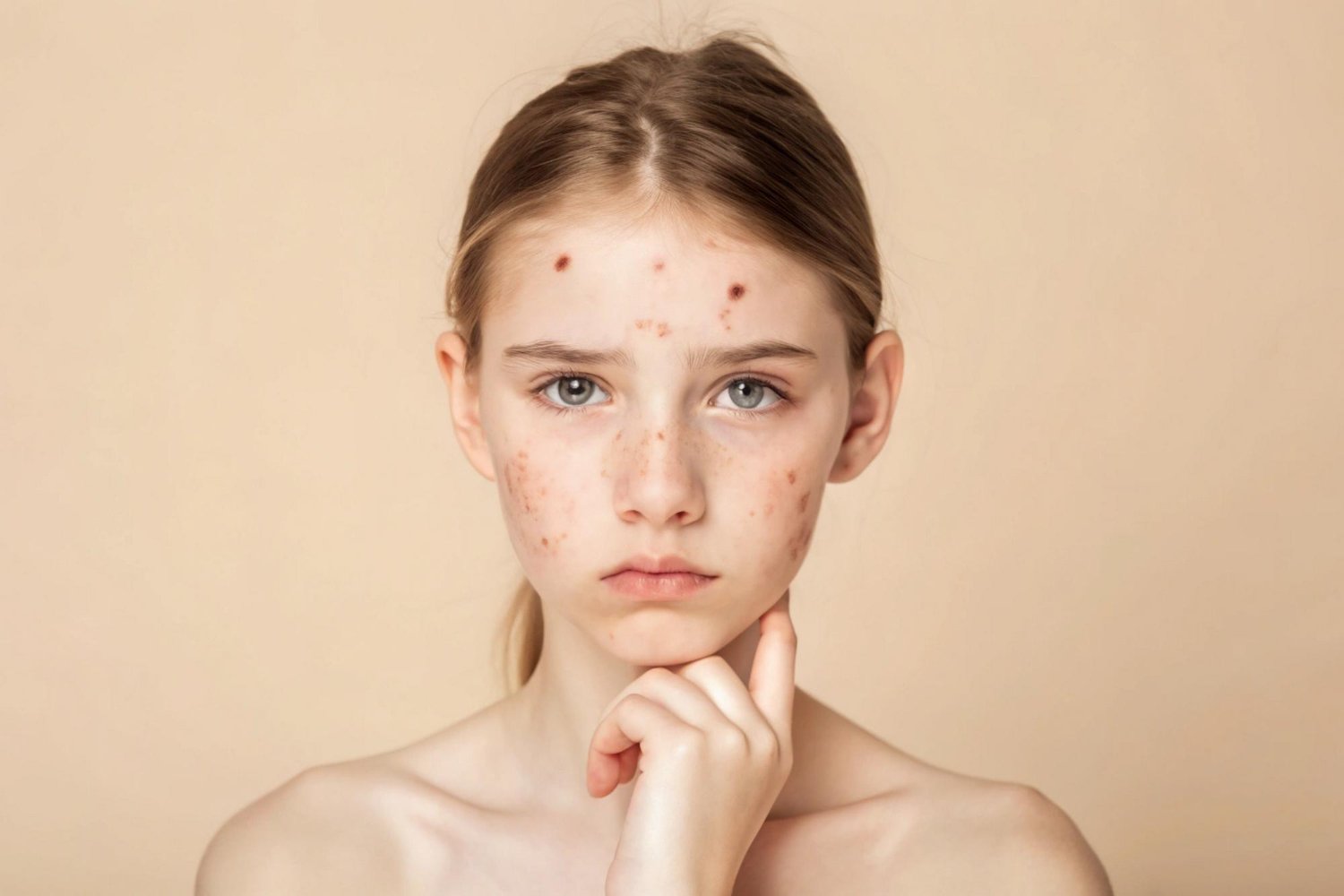- demo@example.com
- Lorem ipsum dolor sit amet consectetur.

PCOS-related acne is primarily due to hormonal imbalances, especially an increase in androgens (male hormones like testosterone). These hormones stimulate the sebaceous glands in the skin to produce excess sebum, which can clog pores and lead to breakouts. Insulin resistance, another common symptom of PCOS, can also contribute by indirectly increasing androgen production. In addition, chronic inflammation often seen in PCOS can make the skin more reactive and worsen acne symptoms.
Acne caused by PCOS typically appears on the lower half of the face—especially the jawline, chin, and neck. It often presents as deep, cystic pimples that are painful and may take a long time to heal. These lesions can be persistent and may flare up before or during menstruation. PCOS acne also tends to leave behind post-inflammatory hyperpigmentation or scarring if not properly treated.

There are both medical and natural treatments available for PCOS-related acne. Medically, birth control pills can help regulate hormones and reduce breakouts. Spironolactone is another commonly prescribed medication that blocks androgen effects on the skin. Metformin can improve insulin sensitivity and indirectly help with hormone balance. Dermatologists may also recommend topical treatments like benzoyl peroxide, salicylic acid, or retinoids. In some cases, short-term antibiotics may be prescribed for severe inflammation.
Diet and lifestyle play a big role in managing PCOS acne. A low-glycemic index diet can help reduce insulin spikes, which in turn helps balance hormones. Drinking spearmint tea has been shown to reduce testosterone levels naturally. Nutritional supplements like zinc, omega-3 fatty acids, and inositol can support hormonal health and reduce inflammation. Regular exercise, stress management, and quality sleep are also crucial for improving overall hormonal balance and skin health.
Consistency is key when it comes to skincare for PCOS acne. Use gentle, fragrance-free, non-comedogenic products that won’t clog pores. A basic routine should include a mild cleanser, a lightweight moisturizer, and a treatment product (like salicylic acid or retinoids). Avoid harsh scrubs or over-exfoliating, as they can irritate the skin and worsen acne. Never pick or pop pimples, as this increases the risk of scarring and post-acne marks.